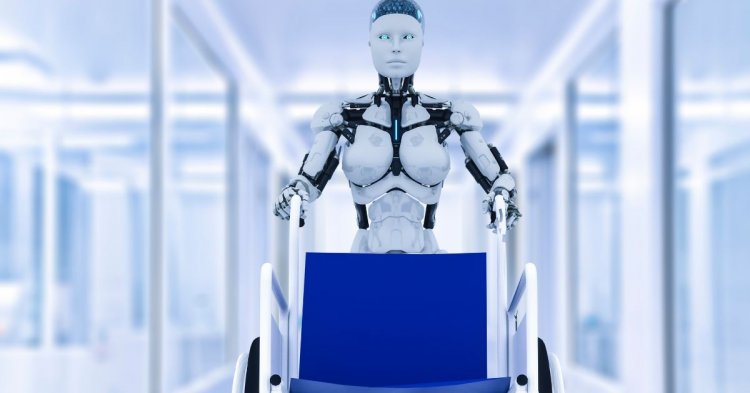Potential of Generative AI in Transforming Healthcare Industry
Uncover the game-changing possibilities of Generative AI in the healthcare field. From speeding up the process of discovering medications to improving diagnoses and tailoring treatments, delve into how this innovative technology generates data that resembles existing information.

Generative AI, a pioneering force in the realm of artificial intelligence, is revolutionizing industries worldwide.
Its impact on healthcare is particularly notable, offering innovative solutions to longstanding challenges.
This article delves into the transformative potential of generative AI in healthcare, exploring its current applications and future prospects.
Understanding Generative AI
What is Generative AI?
Generative AI refers to a subfield of artificial intelligence which specializes in creating new data and patterns.
At its core are technologies like Generative Adversarial Networks (GANs) and deep learning, which enable machines to generate novel, realistic outputs.
From synthesizing new molecules to simulating medical scenarios, its capabilities are vast.
Distinguishing Generative AI from Other AI Technologies
Unlike traditional AI, which primarily interprets and responds to data, generative AI creates new data and insights.
This distinction marks a leap forward in AI’s ability to innovate and problem-solve independently.
Current Applications in Healthcare
Drug Discovery and Development
Generative AI accelerates the drug discovery process, offering a cost-effective means to develop personalized medicine.
By analyzing vast datasets, it identifies potential drug candidates much faster than conventional methods.
Medical Imaging and Diagnostics
In medical imaging, generative AI enhances diagnostic accuracy.
It has shown remarkable results in cancer detection and neurological imaging, assisting doctors in making more informed decisions.
Customized Patient Care Plans
AI plays a pivotal role in devising patient-specific treatment plans, especially in managing chronic diseases. Its ability to analyze individual patient data ensures more effective and personalized care.
Overcoming Challenges
Technical and Logistical Hurdles
Integrating Generative AI into existing healthcare systems presents several unique obstacles.
These include ensuring data quality and addressing logistical issues related to technology adoption.
Regulatory and Compliance Issues
Navigating healthcare regulations and ensuring compliance with laws like HIPAA is crucial.
AI must comply with these regulations for effective integration into healthcare practices.
The Future of Healthcare
Emerging Trends in AI and Healthcare
The future of healthcare with generative AI includes advancements in predictive analytics and personalized medicine.
These trends promise to enhance patient care and treatment outcomes further.
The Role of Collaborations and Partnerships
Partnerships between tech companies and healthcare providers are key.
Successful case studies demonstrate how these collaborations can lead to breakthroughs in patient care and medical research.
Conclusion
The potential of generative AI in the healthcare industry is immense. Its influence will continue to grow rapidly, revolutionizing drug discovery and customizing patient care.
As we navigate challenges and embrace emerging trends, AI stands as a beacon of innovation, heralding a new era in healthcare.
Frequently Asked Questions
What are some current applications of Generative AI in healthcare?
Current applications in healthcare include drug discovery and development, where it accelerates the process and aids in creating personalized medicines.
It also plays a significant role in medical imaging and diagnostics, enhancing accuracy in areas like cancer detection and neurological imaging.
Additionally, it is instrumental in developing customized patient care plans, particularly in chronic disease management.
What challenges are associated with integrating Generative AI into healthcare?
The integration of AI into healthcare faces technical and logistical challenges, such as ensuring data quality and compatibility with existing healthcare systems.
Additionally, there are regulatory and compliance issues, including adherence to healthcare regulations and laws like HIPAA.
What future trends are emerging in the intersection of Generative AI and healthcare?
Future trends include advancements in predictive analytics and personalized medicine. These developments are expected to enhance patient care and treatment outcomes significantly.
How important are collaborations and partnerships in advancing Generative AI in healthcare?
Collaborations between technology companies and healthcare providers are crucial.
They facilitate the sharing of expertise and resources, leading to groundbreaking developments in patient care and medical research.
Can Generative AI help in creating patient-specific treatment plans?
Yes, AI is highly effective in creating patient-specific treatment plans.
By analyzing individual patient data, it can recommend more effective and personalized treatments, especially for chronic diseases.
What's Your Reaction?
















